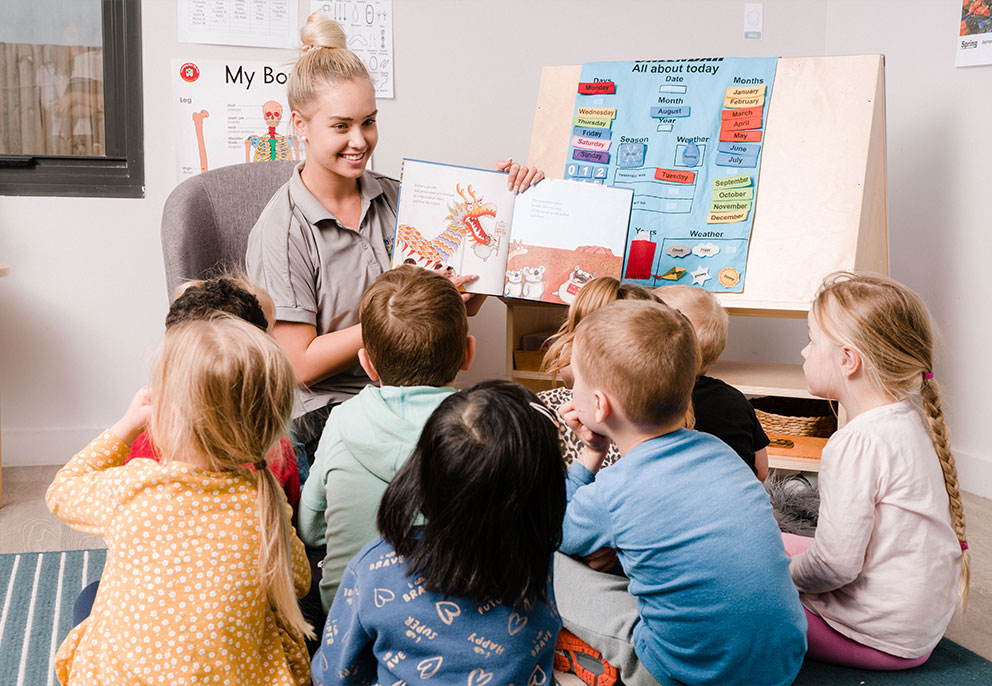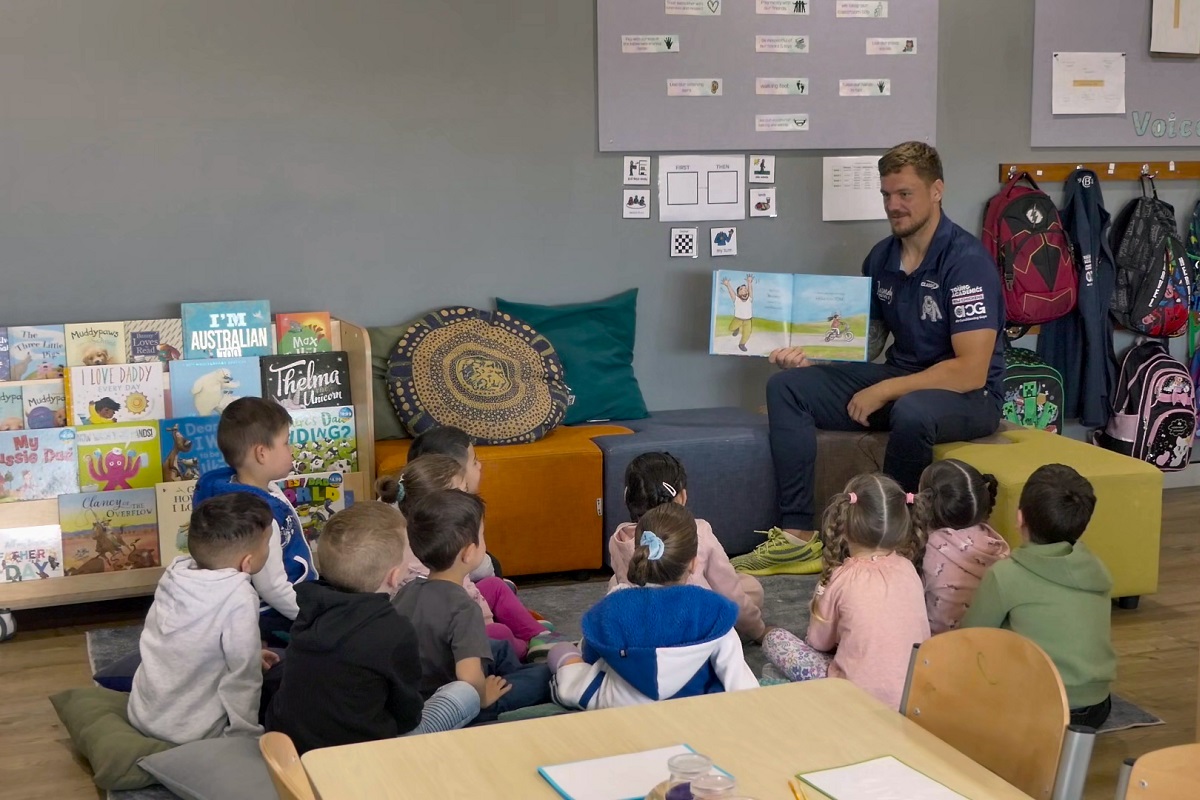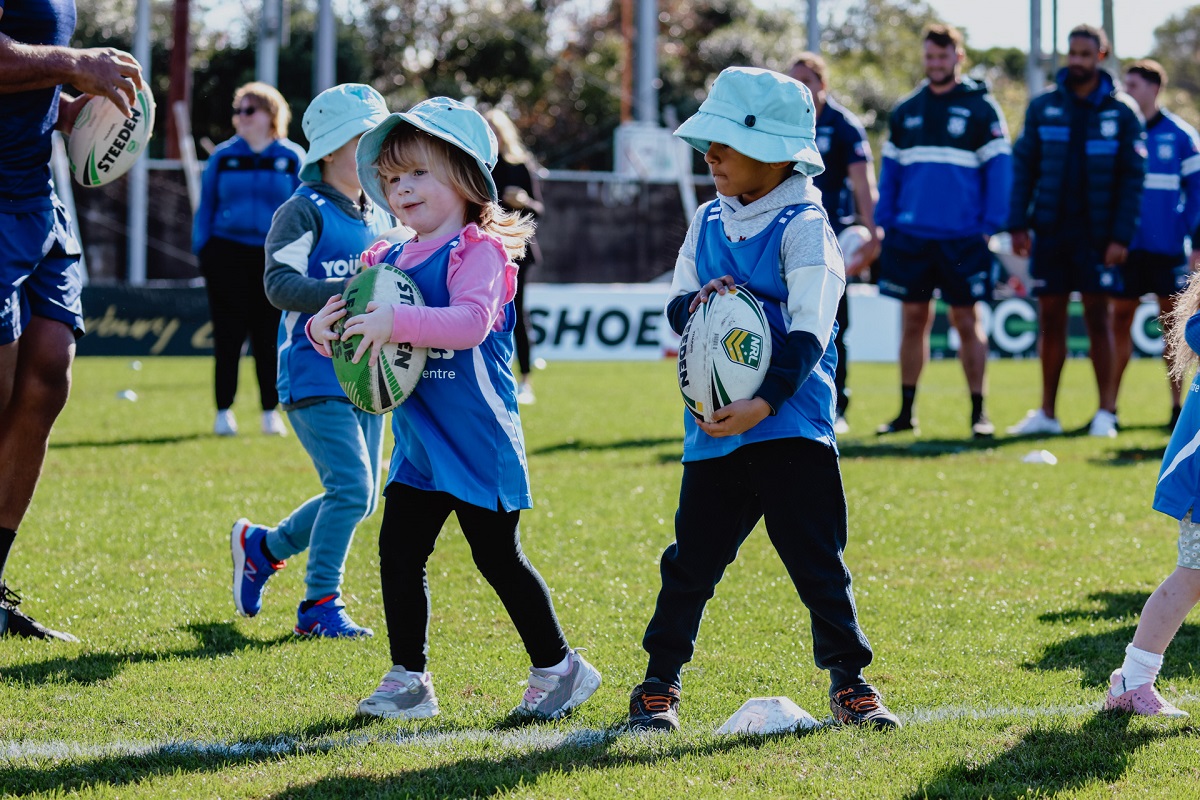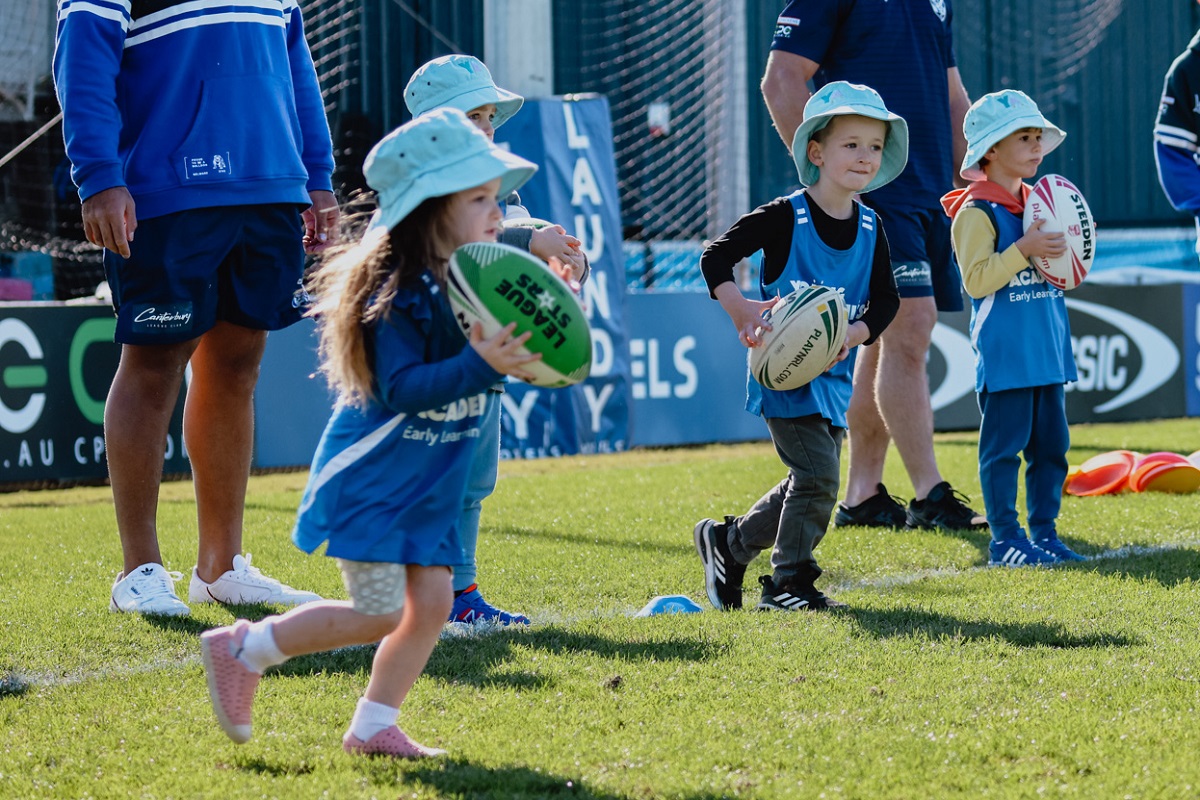Your child’s reading skills are integral to their future academic success and overall development. At Young Academics, our skilled educators are trained to effectively develop foundational skills for reading and writing in preschool aged children at our early learning centres. However, like most developmental areas, building a strong foundation for reading skills begins at home. Here are a few simple ways that you can help your preschool aged child develop their foundational reading skills.
Early learning reading skills develop over time in preschoolers
Building foundational reading skills in children takes time and consistency. It is a great idea for parents to begin nurturing their child’s reading skills not only when they enter childcare, but earlier in their life as well.
Before beginning to learn how to build foundational reading skills, your child should engage in pre-reading strategies which help with early literacy and eventually, with reading in school. Foundational reading skills involve your child understanding how to organise language in books before they actually learn how to read. It’s an important step towards becoming a fluent reader.
Building foundational skills with your children is integral to preschool aged children. Here are some helpful tips on how to develop these skills.
- Read to your child
There is no better way to instil the love of reading and to nurture your child’s skills than by reading to them from a very young age. This activity helps to familiarise children with words and complete sentences, while also assisting with their fluency, and grammar. Read books that your child is interested in and try to ensure that you use different books each time so that they are introduced to a variety of words.
You can also help your child make the connection between letters, words and what they represent (this is called print awareness). It helps to build their vocabulary and promotes interest in reading.
- Challenge them to remake a story
Challenging your child to reorganise a story is an effective method for improving their reading and comprehension skills. If you have a second copy of your child’s favourite book or a detachable storybook, mix up the pages of the story and give it to your child to reorganise. This will prompt them to read the story and figure out how to remake it so that the storyline makes sense.
If you don’t have an extra storybook or a detachable one, you can make your own! Simply print or write a story on different pages. This will have the same effect as a storybook.
- Ask your child to tell you a story about a random picture
Whether it’s a family photograph or a picture of a flower, asking your child to describe the photo will improve their narrative skills and expand their vocabulary. Both are extremely important for developing their oral reading skills and will instil confidence in your child when they have to read out loud in class.
This activity also helps to expand your child’s imagination. While not exactly linked to improving their reading skills, the development of their imagination helps to make the reading experience more enjoyable for children.
- Sing songs and nursery rhymes
Singing both songs and nursery rhymes helps children to hear the smaller sounds in words and builds their vocabulary. In songs and nursery rhymes, children are more likely to hear the beginning, middle and end of a word, allowing them to pronounce the word more accurately when they read out loud.
Songs and nursery rhymes often utilise words that are unfamiliar to children or not a part of their daily vocabulary. By singing them, children are given the opportunity to learn new words and understand how to sound them out.
When children sing songs or rhymes, they are usually reading from a book or script. This also plays into print awareness and allows children to become familiar with printed words and their connection to pronunciations.
Would you like more information on Young Academics Early Learning Centre? Write to us and our friendly team will be more happy to assist.



 BACK
BACK



